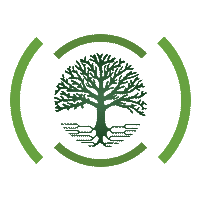Tales & Trails
Main Conference
24-25 May 2025
Pre-Conference Workshops
23 May 2025
SUBMISSION DEADLINE
11:59 p.m. ET, 11 August 2024

SUBMISSION DEADLINE
11:59 p.m. ET, 11 August 2024
The National Genealogical Society (NGS) invites innovative proposals for its 2025 Family History Conference Tales and Trails at the Galt House Hotel in Louisville, Kentucky.
As genealogists, we seek to understand those who came before us. We learn about the lives our ancestors led, the opportunities they had, and the sacrifices they made. We travel, both literally and figuratively, the trails they left behind. Tales and Trails connects us with stories of the people and places we come from.
With its storytelling tradition and significant role in American migration, Kentucky is the perfect place to share your knowledge with genealogists and family historians at every learning level. The history of Kentucky and the Ohio River Valley is the story of America. It’s a tale of people moving through the Cumberland Gap, down the Ohio River, upon the Underground Railroad, or along the Trail of Tears. It is a chronicle of freedom and opportunity and an account of oppression and loss. Your lecture will help family historians along the path of lifelong genealogical learning.
Like the 2024 conference, NGS will provide lecture recordings via the conference app to paid registrants until 15 August 2025, allowing us to provide every attendee with every lecture. All speakers agree to have their slides and audio (no speaker video) recorded live from the Galt House. Speakers who wish can allow NGS to market those recordings after 15 August 2025 for additional compensation.
NGS encourages proposals of interest to family historians from beginning to advanced levels. The 2025 NGS Conference will offer attendees the latest information to build their skills, learn about new records, and discover techniques to be successful. Conference topics under consideration include the following and more:
We seek proposals for one-hour presentation-style sessions, including time for questions and answers on any of the above topic areas.
We seek proposals for two-hour in-depth sessions that provide more in-depth learning in any of the above topic areas.
NGS and the Afro-American Historical and Genealogical Society (AAHGS) seek proposals for African American family history research lectures or by lecturers of color. AAHGS members and others are encouraged to submit proposals for inclusion in this series at the 2025 NGS Family History Conference.
NGS will accept a limited number of sponsored lecture proposals from genealogy organizations and companies for the main conference in 2025. Sponsors pay speakers directly and agree to a minimum sponsorship fee of $750 per lecture.
We seek proposals for pre-conference workshops that provide in-depth, hands-on learning in any of the above topic areas. Pre-conference workshops require separate registration fees. Before submitting a proposal, you must email the program co-chairs to discuss potential requirements, including equipment needs, registration caps, space design, registration fees, and revenue sharing.
NGS is NOT currently accepting session proposals for managing and growing genealogy societies, libraries, archives, museums, and other institutions. Planning is underway to offer a new format for the FOCUS pre-conference event for organizations. We are creating an in-person experience to provide valuable learning and networking opportunities for organization leaders, staff, volunteers, and members. Watch for more information about 2025 FOCUS.
Use the submission portal to submit proposals for regular sessions for the main conference (24-25 May), pre-conference workshops (23 May), or sponsored sessions for the main conference.
We seek new, innovative presentations. Please do not submit a proposal for a lecture that has been presented previously at a regional, state, or national level event, is scheduled to be presented before May 2025, or is available for free online. Presentations to small local groups are okay.
Speakers receive a $250 honorarium and up to $500 in reimbursable travel expenses (receipts required) for a total compensation of up to $750 for a one-hour session.
Speakers for a double session receive a $500 honorarium and up to $1000 in reimbursable expenses for a total compensation of up to $1500.
Workshop presenters negotiate revenue sharing with NGS based on total capacity, registration fee, and other factors, including NGS expenses and a management fee.
Optional sales after 15 August 2025 receive $1.00/sale royalties. Royalties are paid annually on 15 August for as long as the speaker chooses to make the lecture available. Option included in speaker contracts.
We have a free webinar, Becoming a Better Conference Speaker: Proposals and Preparations, on our YouTube channel. We encourage you to view the video before beginning the proposal process. Topics covered include lecture proposals, presentations, syllabus materials, communications, and delivery.
We will send acceptance notifications and speaker contracts in the fall of 2024. Syllabus material, due 1 March 2025, is required for each lecture or presentation and will be included in the compendium distributed to all conference registrants.